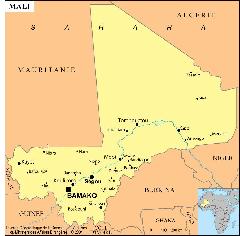Despite what many might think capacity building is best for developing nations.
Posted 3 Apr 2013 by Walaa Idris

For three month now, French troops have been on the ground assisting the Malian government to fight back and counter an Islamist insurgency in Mali and the region. This month the EU decided to train Malian troops.
At an army centre outside the capital Bamakon, a team of 3000 soldiers will be trained as special operations and snipers for the Malian army. The aim is to equip a professional army to effectively resist armed terrorist gangs active in the region for the last three month. They will gain experience in providing communication in combat conditions, while at the same time receive artillery and engineering training.
This move will allow the Malian army to operate self-sufficiently and effectively in the on-going identification and elimination of extremist groups in the country.
In developing countries, where security challenges are a growing concern, capacity building is still best and the most cost effective long term solution. While elite forces from developed nations, are better trained and armed, local law enforcement are usually best equipped socially. Weapons’ training is very important and with good bespoke training programs it can be mastered in a short time. However the intimate geographical and cultural understandings of a region can take longer to develop and master, particularly for outsiders. Plus in some instances using foreign forces to resolve inside conflicts don’t always fully avert the crisis, while in many cases can be intimidating even to those being helped.
For that reason, now a growing number of security training firms, such as Rubus Securities, besides developing tailor-made training exercises also deliver all trainings in the clients’ own terrain and when possible with the client’s existing equipment.
Categories: Mali , Security Capacity Building
Commenting is closed for this article.



 London Bus Route 11
London Bus Route 11